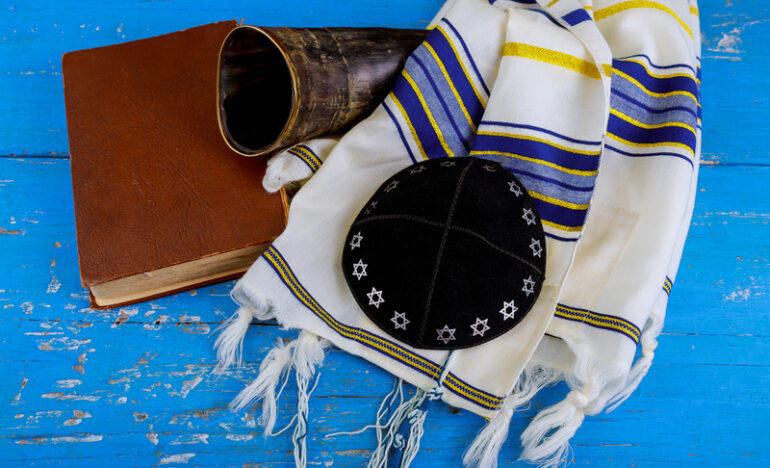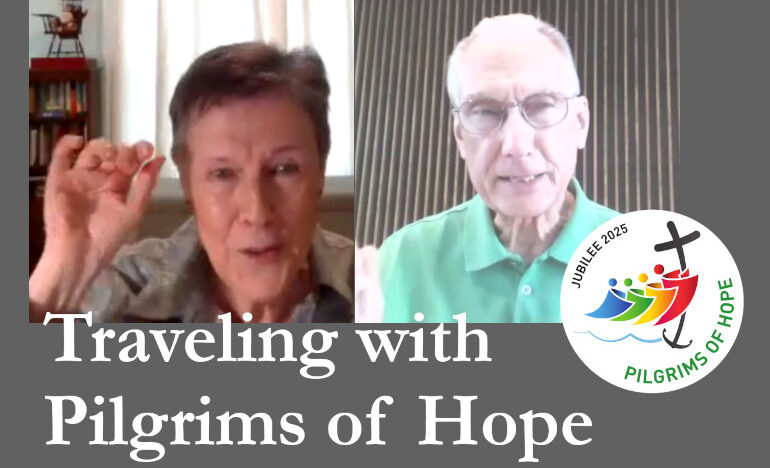Yom Kippur: A Solemn Day of Atonement

By Kathy Keary
Our full series on Contemplative Life is here.
Our new series on Judaism and Contemplation is here.
In our last article, we explored Rosh Hashanah, the day that the Jewish people are called to deep self-reflection calling to mind the times in the previous year when they have missed the mark. It’s a time of reconciliation with God and others and an opportunity for spiritual renewal.
This self-examination continues throughout the 10 days following Rosh Hashanah in hopes that by Yom Kippur, the Day of Atonement, an individual will have a plan on how they will turn around past transgressions and walk in righteousness in the coming year. Rabbi Ted Falcon describes Yom Kippur as a day during which “atonement” becomes “at-one-ment,” when Jews “feel an extraordinary sense of release and spiritual unity that comes with forgiveness” (Falcon, 272).
According to Jewish tradition, Yom Kippur is considered the day when God decides the fate of each person. Even though Yom Kippur is an intense and solemn day, it is viewed in an upbeat light. If one has properly observed the High Holy Days, at the conclusion, they will be fully reconciled with God and others (Pelaia).
In Judaism, there is no authority figure who absolves an individual of their sins. If one has both repented and atoned for their wrongdoings, Yom Kippur offers a blanket forgiveness directly from God. It’s not enough to apologize to someone whom you have hurt. Reparations are necessary. While a rabbi may counsel a person in ways to make amends, it is a matter to be explored between the person and the injured party or the person and God (Falcon, 273).
Tradition imposes many restrictions on a Jewish person’s activity on Yom Kippur such as refraining from bathing, using perfume or moisturizers, engaging in intimate relations, wearing leather, eating, and drinking. By not engaging in the pleasurable act of eating, one atones for every sin committed that has not yet been atoned for. A fast frees a person from thinking about ordinary things, so they can focus on prayer and the spiritual significance of the day (Falcon, 274).
Yom Kippur begins prior to sundown and extends to sundown the next day. It is customary to eat dinner prior to the evening prayer service that begins this sacred day. A special blessing is offered while lighting candles before dinner:
Blessed are You, Eternal One Our God, Universal Ruling Presence Who sanctifies us with mitzvot (paths of holiness) and gives us this mitzvot of kindling the light of Yom Kippur.
Many Jews also light candles that will burn for 24 hours to remember their deceased family members. Partaking in a ritual bath for spiritual cleansing to prepare for this holy day is common. Many also say special blessings for their children prior to entering the synagogue (Pelaia).
Note: Never miss an article published on the Renewal Center website: Sign up to receive our newsletters.
Yom Kippur begins with an evening prayer service known as Kol Nidre named after a portion of the liturgy that is sung. Forgiveness is sought for the failure to keep any vows an individual has made with God (Pelaia). The haunting melody is described as being both mysterious and deeply moving (Falcon, 277).
Prayer services continue throughout the next day until nightfall. A prayer that is repeated throughout the day is known as Al Khet. Forgiveness is sought for a variety of sins. Excerpts from the Al Khet follow:
For the sin that we have committed under stress or through choice;
For the sin that we have committed in stubbornness or in error;
For the sin that we have committed in the evil meditations of the heart;
For the sin that we have committed by word of mouth;
For the sin that we have committed through abuse of power;
For the sin that we have committed by exploitation of neighbors;
For all sins, O God of forgiveness, bear with us, pardon us, forgive us!
Practitioners typically beat their fists against their chests when each sin is recited. Everyone recites each offense regardless of their individual guilt. This tradition teaches that every Jew bears a measure of responsibility for the actions of other Jews (Pelaia). As stated by Falcon, “All of the children of Israel are considered a single body, and each person is a limb of that body. Each Jew confesses to the sins of the whole family” (Falcon, 278).
The Book of Jonah is read in the afternoon as a reminder of God’s generosity in forgiving those with contrite hearts. The last part of the service is known as Ne’ilah (Shutting). Intense prayer is lifted during this time asking to be admitted to God’s presence before the gates have shut (Pelaia). At the conclusion of this prayer, one long blast of the shofar (ram’s horn) is blown (Falcon, 280).
Self-examination, acknowledging one’s downfalls, committing to turning around one’s behavior, and seeking forgiveness are crucial elements found in the major religions of the world. Being in a right relationship with God and others is fundamental in living a contemplative lifestyle.
Next week we will turn our focus to Sukkot, a weeklong festival celebrated five days after Yom Kippur.
References
Falcon, Ted and Blatner, David. Judaism for Dummies. Hoboken, New Jersey: John Wiley and Sons, Inc, 2019.
Pelaia, Ariela. “What is Yom Kippur?” Learn Religions, July 22, 2020. https://www.learnreligions.com/what-is-yom-kippur-2076499
Photo 124226436 / Yom Kippur © Photovs | Dreamstime.com
Kathy Keary, a Precious Blood Companion and spiritual director, holds a Master’s Degree in Theological Studies and is a graduate of the Atchison Benedictines Sophia Center’s Souljourners Program, an intense study of spirituality and spiritual direction. Kathy believes that the Divine is present and active in all of life and encourages others to be awakened to the God in all including the divine within. She enjoys accompanying others on their journey to wholeness discovering the person they were created to be.
We’d Like to Hear from You!
We’d like to know what you think about this article. Send us a comment using the form below. Do you have a suggestion? Is there something you want to learn more about? Send us a note.
Related

Pilgrims of Hope, Episode 6: Walking with Cancer Survivors
Hosted by Fr. Ron Will, C.PP.S.
We are talking with people who find hope amid difficult circumstances or bring hope to others. In this episode, Kathy Keary talks about how centering prayer, journaling and other spiritual practices helped her cope with two life threatening health issues.

The Rollercoaster Torture
An Assembling God’s Puzzle video
By Fr. Garry Richmeier, C.PP.S.
Life is full of ups and downs, like a roller coaster, and that fact is a piece of life’s puzzle that we must deal with. Depending on how we deal with it, it can be torture, or it can be simply another difficult aspect of life to be navigated. How do we avoid the torture?
Categories
Assembling God's Puzzle Coffee with Padre Cooking & Spirituality Encounters of the 4th Kind Family Matters Reflections on the Eucharsitic Prayers Spiritual Resources Taize Prayers The Contemplative Life Traveling with Pilgrims of Hope Uncategorized Videos Week of Prayer for Uhristian Unity When you need a little help
